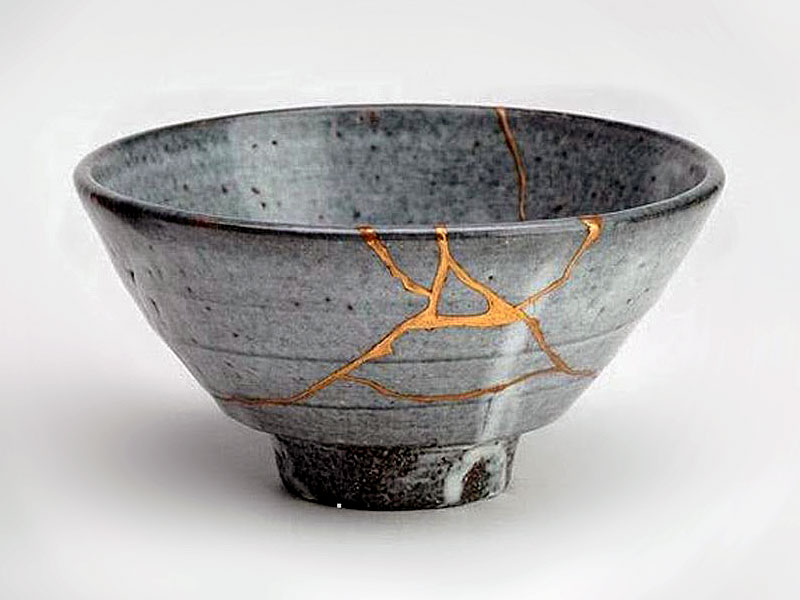The very awareness of the impermanence of things, people and life itself leads us to appreciate them fully, NOW. Yet, the longing to cling to a moment, a person, or a thing, is part of human nature and inevitably invokes sadness. It is also part of human nature to rise and meet challenges in times of crisis. The word crisis in Japanese (危機=kiki) is made up of 危=”danger” and 機=”opportunity”. The Japanese have shown as a nation that they are exceptional at finding opportunities when things turn bad, they have managed to bounce back, rebuild and grow stronger, following wars, nuclear disasters and so many earthquakes. Isn’t this crisis an opportunity for us all to grow as human beings individually, but also as united citizens of the Earth?
Transience of all things
When I was studying Japanese language and literature and translating Junichiro Tanizaki’s essay ‘In Praise of Shadows’ agonising over each word during this laborious exercise, little did I know that almost 30 years later I would be pondering the theme of light and shadow again. I seem to have come full circle – immersing myself again in the subtle, quiet and elusive world of Japanese aesthetics, semantics and philosophy. This has brought me solace and valuable lessons that are relevant in these turbulent times.
Tanizaki’s essay is a fine example of exploring what Japanese call mono-no-aware, a feeling of simultaneous appreciation and sadness for the transient beauty of things, and life on the whole. In his contemplative essay Tanizaki ponders the play of light and shadow and speaks in favour of shadow. Shadow amplifies the understated beauty of weathered, well used objects such as china, teacups, lacquerware and embroidery. If there were no shadow, how would we appreciate light? Acceptance and appreciation of this duality creates unity of the opposites, teaches us to see the beauty where we didn’t see it before. Wabi is about finding beauty in simplicity and detaching from the material world. Sabi is about growing old and beautiful with age, about the transience of everything. While Wabi is about imperfection, Sabi is about impermanence. In today’s Japan, Wabi-Sabi is used to denote ‘wisdom in natural simplicity’. As Beth Kempton points out in her wonderful book “Wabi Sabi – Japanese Wisdom for a Perfectly Imperfect Life” Wabi-Sabi is an ideal and a concept that lives in the hearts and minds of the Japanese people. Watching cherry blossoms drop to the ground during hanami (cherry blossom viewing in spring) is a poignant epitome of Wabi-Sabi, enjoying and appreciating the fleeting beauty, whilst knowing that it will quickly pass and leave a sense of nostalgia and longing.
Back to basics
So, what about transience, simplicity, the passing of everything? Well, I see all of that right now with what’s happening with OUR world. We are reminded of what really, truly matters – things money cannot buy – time, health, loved ones. We are reminded that appreciation of simplicity – time to reflect, to share meals, and get back to the basics of living – is what has been missing from our lives. At least for a large majority of people in developed countries. We have been taken down from our high horse and reminded that we can be kind and beautiful even with pandemic masks on our faces, without make-up, heels, or elegant suits.
And the imperfection, ah so liberating, so accepting, so loving and compassionate. For too long we have carried on with our busy lives, under pressure to be perfect, successful, good-looking, clever, wealthy, slim, fit, captivating…to have more, to buy more, to achieve more. How important is all of that, really?
Purpose
Chasing money, status, never-ending improvement of anything and everything, we may have forgotten the bigger picture – what is all this for? Who do we serve and what’s the meaning of it all? Let’s ask nurses, doctors, bus drivers, warehouse workers, delivery men, manufacturers of medical supplies, and scientists working tirelessly on ground-breaking discoveries. But wait – they have no time to talk to us, to give us an answer. They are in the middle of it all. They are serving and living their purpose. They are part of something infinitely bigger than themselves, and they have thrown themselves into service without a thought or reservation. They are living their Ikigai – a life filled with meaning and purposeful work, giving them the reason to keep going, no matter what. Ikigai is another concept that you will not find the Japanese talking about ordinarily. In their book “Ikigai – The Japanese Secret to a Long and Happy Life” Garcia and Miralles share with us that being focused on a single activity and having a clear objective, being in flow, connects us to our purpose, our reason for being, our Ikigai. Though usually linked to creativity, Ikigai on a deeper level means being connected to your essence and serving a higher end goal – this is exactly what we are witnessing now – the amazing feats and acts of kindness and solidarity performed by both those in medical and other care professions, keyworkers and ordinary people alike.
What doesn’t kill you makes you stronger, and maybe also wiser?
‘The wound is the place where the Light enters you’ – a quote by famous poet Rumi – comes to mind. In times of trouble and strife, we reach new heights as human beings, we touch our humanity deeply and elevate ourselves closer to the Divine. And there is beauty, a golden treasure to be found in the wound, in the place of breakage.
Just like the Japanese art of Kintsugi, where broken pottery pieces are mended with gold – built on the idea that in embracing flaws and imperfections we can create an even stronger, more beautiful piece of art – let’s become that piece of human art. Humble, appreciative, kind and compassionate, accepting and yet working with purpose, finally embracing impermanence and imperfection as the rare truths of human existence.



